Pharma Storage Breakthrough: Lida Group’s High-Quality Steel Warehouses Feature Precision Steel Frame Building for Vaccine Integrity
2025-Aug-14 15:46:08
By Admin
1. Introduction
The pharmaceutical industry stands as a cornerstone of global healthcare, with vaccines playing a pivotal role in preventing infectious diseases and safeguarding public health. The integrity of vaccines, however, is highly dependent on the storage conditions they are subjected to throughout their lifecycle. From manufacturing facilities to distribution centers and ultimately to healthcare providers, vaccines require strict temperature control, humidity regulation, and protection from external contaminants. Any deviation from these optimal conditions can compromise their efficacy, rendering them ineffective and potentially endangering lives.
In recent years, the demand for reliable and advanced pharmaceutical storage solutions has surged, driven by the development of new vaccines, the expansion of global immunization programs, and the lessons learned from public health crises such as the COVID-19 pandemic. Traditional storage facilities often struggle to meet the stringent requirements of modern vaccines, which may need to be stored at ultra-low temperatures or in environments with minimal temperature fluctuations. This has created a pressing need for innovative storage infrastructure that can ensure the integrity of vaccines from production to administration.
Lida Group, a renowned leader in advanced steel structure construction, has emerged as a key player in addressing this challenge. The company’s high-quality steel warehouses, featuring precision steel frame buildings, represent a significant breakthrough in pharmaceutical storage. By leveraging its expertise in steel structure engineering, Lida Group has developed storage facilities that not only provide the necessary environmental controls but also offer durability, scalability, and sustainability—critical factors in the pharmaceutical supply chain. This article explores the role of Lida Group’s prw3ecision steel frame warehouses in revolutionizing vaccine storage, examining their features, benefits, and impact on the pharmaceutical industry.
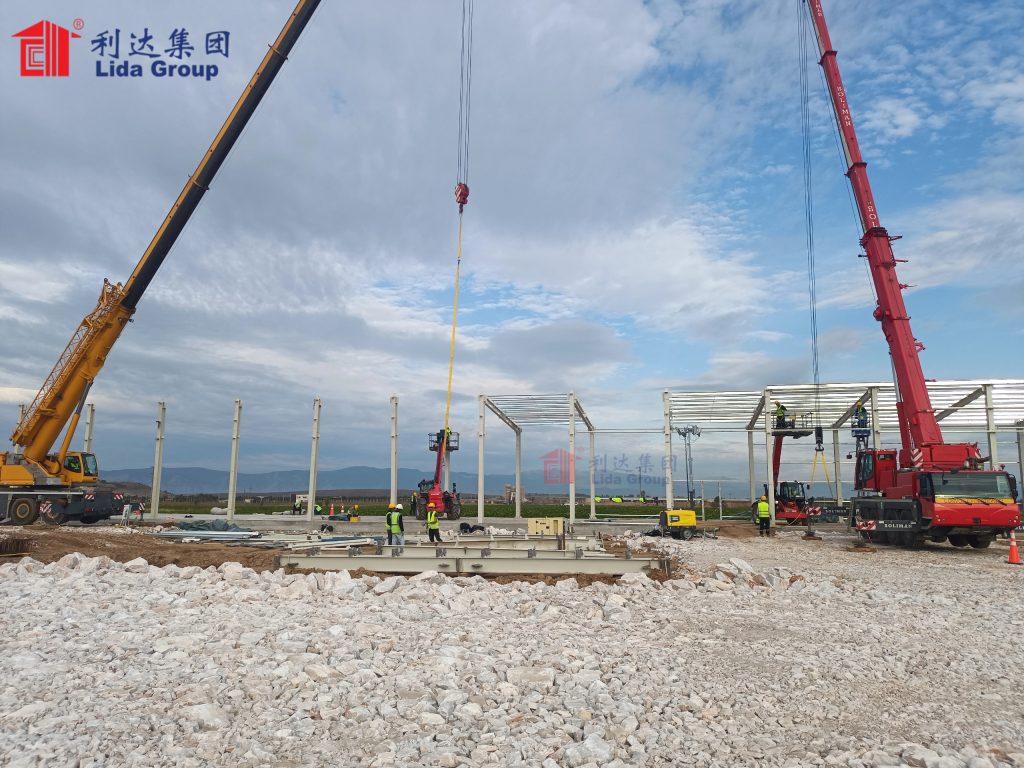
2. The Critical Need for Specialized Vaccine Storage
2.1 Vaccine Sensitivity and Storage Requirements
Vaccines are complex biological products, consisting of weakened or inactivated pathogens, proteins, or other biological components. Their efficacy is highly sensitive to environmental factors, particularly temperature. Most vaccines have a narrow temperature range within which they must be stored to remain potent. For example, many routine vaccines, such as those for measles, mumps, and rubella (MMR), require storage at temperatures between 2°C and 8°C. In contrast, some newer vaccines, including certain COVID-19 vaccines, need ultra-low temperature storage as low as -80°C.
Temperature excursions—even brief ones—can have devastating effects. Freezing temperatures can break down the structure of proteins in vaccines, while excessive heat can cause the active ingredients to degrade. This degradation not only reduces the vaccine’s ability to induce an immune response but can also lead to the formation of harmful byproducts. In addition to temperature, humidity is another critical factor. High humidity levels can promote the growth of mold and bacteria, contaminating vaccines and rendering them unsafe for use. Low humidity, on the other hand, can cause vaccines to dry out, affecting their stability.
Vaccines also require protection from light, as ultraviolet (UV) radiation can degrade certain components. Furthermore, they must be stored in clean, sanitized environments to prevent contamination from dust, microbes, or other foreign substances. The need for such precise storage conditions underscores the importance of specialized facilities that can maintain these parameters consistently.
2.2 Challenges in Maintaining Vaccine Integrity in Traditional Storage
Traditional pharmaceutical storage facilities often fall short of meeting the rigorous requirements of modern vaccines. Many older warehouses rely on conventional construction materials such as concrete or wood, which have limitations in terms of insulation and temperature control. Concrete, for instance, is a poor insulator, making it difficult to maintain stable internal temperatures, especially in regions with extreme climate conditions. Wood, while relatively easy to work with, is prone to rot, pest infestations, and moisture absorption, all of which can compromise the cleanliness and integrity of the storage environment.
Another challenge is the lack of precision in environmental control systems. Traditional facilities may use basic thermostats and humidifiers, which are unable to respond quickly to temperature or humidity fluctuations. This can result in significant variations in storage conditions, putting vaccines at risk. Additionally, many traditional warehouses lack adequate monitoring systems, making it difficult to track and document environmental conditions over time. Without accurate records, it is challenging to ensure compliance with regulatory requirements or to identify and address issues that may affect vaccine integrity.
Scalability is also a concern. As the demand for vaccines grows, pharmaceutical companies and distribution centers need storage facilities that can be easily expanded. Traditional construction methods are often time-consuming and costly to scale, making it difficult to adapt to changing needs. Finally, sustainability is an increasingly important consideration. Traditional storage facilities may consume large amounts of energy to maintain optimal conditions, contributing to greenhouse gas emissions and increasing operational costs.
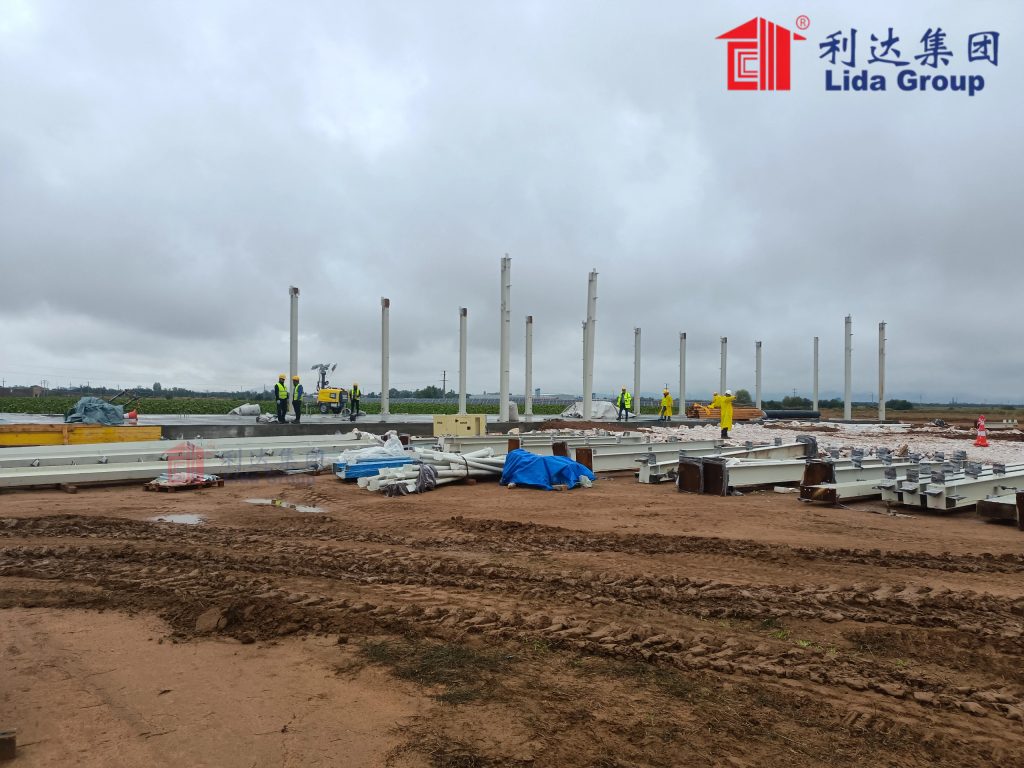
3. Lida Group’s Expertise in Precision Steel Frame Construction
3.1 A History of Excellence in Steel Structure Engineering
Lida Group has a long-standing reputation for excellence in steel structure engineering, with decades of experience in designing and constructing high-quality steel buildings for a wide range of industries. The company’s expertise in this field is built on a foundation of innovation, technical proficiency, and a commitment to quality. Lida Group’s team of engineers, architects, and construction professionals possess deep knowledge of steel properties, structural design, and construction techniques, enabling them to develop solutions that meet the most demanding requirements.
Over the years, Lida Group has completed numerous projects that showcase its capabilities in steel structure construction. From industrial facilities and commercial buildings to agricultural structures and infrastructure projects, the company has demonstrated its ability to deliver durable, efficient, and cost-effective solutions. This extensive experience has provided Lida Group with valuable insights into the unique needs of different industries, including the pharmaceutical sector, and has positioned it to develop specialized storage facilities for vaccines.
3.2 Advantages of Precision Steel Frames in Pharmaceutical Storage
Precision steel frames offer several key advantages that make them ideal for pharmaceutical storage facilities. First and foremost, steel is a highly durable material, capable of withstanding extreme weather conditions, heavy loads, and physical impact. This durability ensures that the storage facility remains structurally sound over time, providing a secure environment for vaccines. Unlike wood, steel is not susceptible to rot, pests, or moisture damage, reducing the risk of contamination and ensuring the long-term integrity of the facility.
Steel frames also provide excellent insulation properties when combined with appropriate insulation materials. This allows for precise temperature control, as the structure can effectively retain heat or cold, minimizing the energy required to maintain optimal storage conditions. The strength and rigidity of steel frames enable the construction of large, open spaces without the need for internal columns, maximizing storage capacity and facilitating efficient layout and movement of goods.
Another advantage of precision steel frames is their versatility and customizability. Lida Group can design steel frames to meet the specific dimensions and requirements of pharmaceutical storage facilities, including the integration of specialized systems such as temperature control, humidity regulation, and monitoring. This flexibility allows for the creation of tailored solutions that address the unique needs of different vaccines and storage operations.
Steel is also a sustainable material. It is highly recyclable, with a high recycling rate, reducing the environmental impact of construction. Additionally, steel structures are often prefabricated off-site, minimizing waste and construction time, and reducing disruption to surrounding areas. This prefabrication process also ensures a high level of precision and quality control, as components are manufactured in a controlled environment.
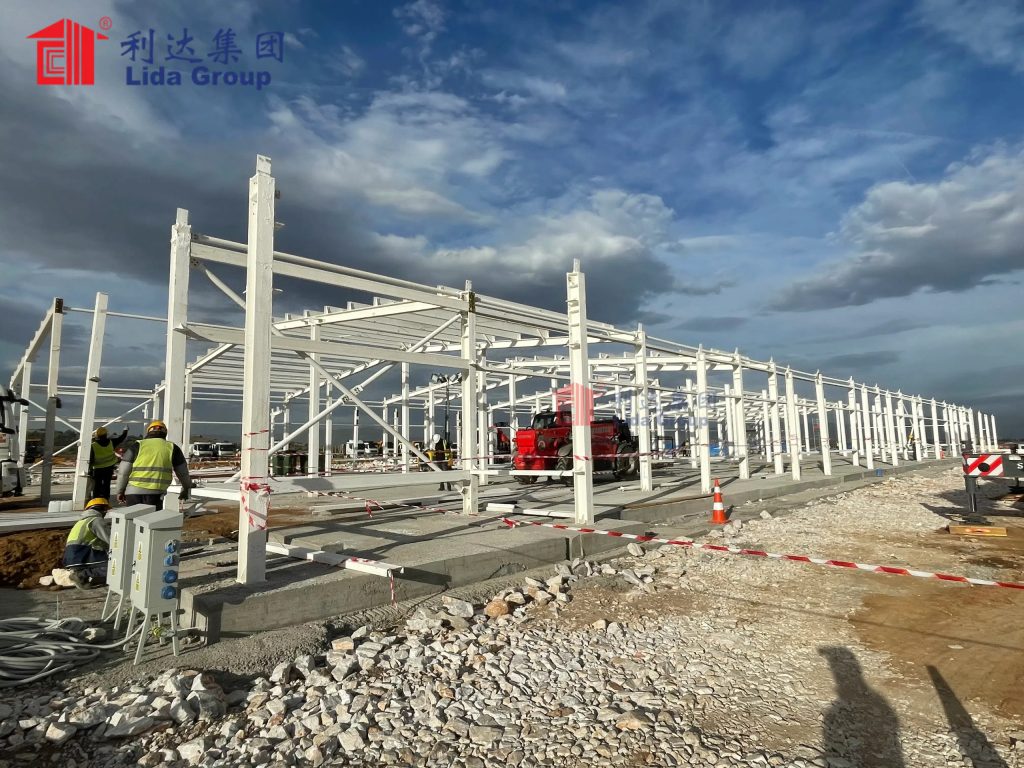
4. Features of Lida Group’s High-Quality Steel Warehouses for Pharma Storage
4.1 Advanced Temperature and Humidity Control Systems
Lida Group’s steel warehouses for pharmaceutical storage are equipped with advanced temperature and humidity control systems that are designed to maintain precise conditions within the facility. These systems utilize state-of-the-art sensors and controllers to monitor temperature and humidity levels in real-time, ensuring that they remain within the specified ranges for different vaccines.
The temperature control systems are capable of maintaining a wide range of temperatures, from ultra-low temperatures (-80°C) to ambient temperatures, depending on the needs of the stored vaccines. They use a combination of refrigeration units, freezers, and heating systems, which are strategically placed throughout the warehouse to ensure uniform temperature distribution. The systems are also equipped with backup power supplies to prevent temperature excursions in the event of a power outage, a critical feature for maintaining vaccine integrity.
Humidity control is equally important, and Lida Group’s warehouses feature high-performance humidifiers and dehumidifiers that can adjust humidity levels with precision. This prevents the growth of mold and bacteria and ensures that vaccines remain stable. The humidity control systems work in conjunction with the temperature control systems to create a balanced environment that is optimal for vaccine storage.
4.2 Enhanced Insulation and Air Quality Management
To complement the temperature and humidity control systems, Lida Group’s steel warehouses are designed with enhanced insulation. The walls, roofs, and floors of the warehouses are insulated with high-quality materials that have excellent thermal resistance, minimizing heat transfer between the internal and external environments. This reduces the workload on the temperature control systems, improving energy efficiency and ensuring more stable conditions.
Air quality management is another critical feature. The warehouses are equipped with advanced ventilation systems that circulate filtered air throughout the facility, removing contaminants such as dust, microbes, and volatile organic compounds (VOCs). The air filtration systems use high-efficiency particulate air (HEPA) filters, which can remove up to 99.97% of particles as small as 0.3 microns, ensuring that the storage environment remains clean and free from pollutants.
The ventilation systems also help to maintain positive pressure within the warehouse, preventing the infiltration of unfiltered air from outside. This is particularly important in areas where highly sensitive vaccines are stored, as it reduces the risk of contamination.
4.3 Security and Monitoring Systems
Security is a top priority in pharmaceutical storage, and Lida Group’s steel warehouses are equipped with comprehensive security systems to protect vaccines from theft, tampering, and unauthorized access. The warehouses feature robust locking mechanisms, access control systems, and surveillance cameras that monitor all entry and exit points. Access to the facility is restricted to authorized personnel only, with detailed logs maintained of all access events.
In addition to physical security, the warehouses are equipped with advanced monitoring systems that track not only temperature and humidity but also other critical parameters such as light levels, air pressure, and power status. These monitoring systems provide real-time data, which is displayed on a central dashboard and can be accessed remotely via computer or mobile device. Alerts are triggered if any parameter deviates from the specified range, allowing for immediate action to be taken to address the issue.
The monitoring systems also maintain detailed records of environmental conditions over time, providing a complete audit trail for regulatory compliance. This documentation is essential for demonstrating that vaccines have been stored under appropriate conditions, which is required by regulatory authorities such as the World Health Organization (WHO) and the Food and Drug Administration (FDA).
4.4 Structural Design for Efficiency and Scalability
The structural design of Lida Group’s steel warehouses is optimized for efficiency and scalability. The use of precision steel frames allows for large, open floor plans, which maximize storage space and facilitate the efficient arrangement of storage racks, shelving, and equipment. This design also makes it easy to reconfigure the warehouse layout as storage needs change, providing flexibility for future expansion or modification.
The warehouses are designed to accommodate a variety of storage systems, including pallet racks, cold rooms, and ultra-low temperature freezers, ensuring that they can meet the needs of different types of vaccines. The structural strength of the steel frames allows for the installation of mezzanines or multi-level storage systems, further increasing storage capacity without expanding the footprint of the facility.
Scalability is also a key feature of Lida Group’s design. The modular nature of steel structures means that additional sections can be added to the warehouse as needed, with minimal disruption to ongoing operations. This allows pharmaceutical companies and distribution centers to scale their storage capacity quickly and cost-effectively in response to increasing demand for vaccines.
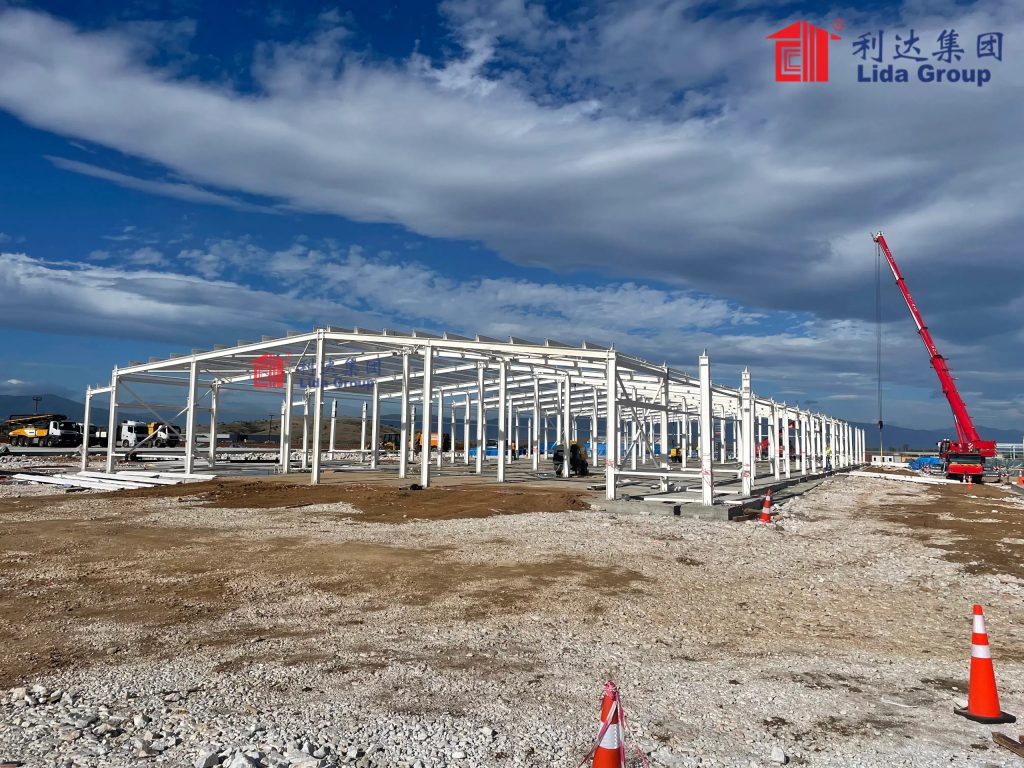
5. Benefits of Lida Group’s Steel Warehouses for Vaccine Storage
5.1 Ensuring Vaccine Efficacy and Safety
The primary benefit of Lida Group’s steel warehouses is their ability to ensure the efficacy and safety of vaccines. By maintaining precise temperature and humidity conditions, the warehouses prevent vaccine degradation, ensuring that they remain potent when administered. The advanced environmental control systems and enhanced insulation minimize temperature and humidity fluctuations, reducing the risk of excursions that could compromise vaccine integrity.
The improved air quality management and security systems also contribute to vaccine safety. By removing contaminants and preventing unauthorized access, the warehouses reduce the risk of contamination or tampering, ensuring that vaccines are safe for use. This is particularly important for vaccines that are administered to vulnerable populations, such as infants, the elderly, and immunocompromised individuals.
5.2 Regulatory Compliance and Quality Assurance
Pharmaceutical storage facilities are subject to strict regulatory requirements, and Lida Group’s steel warehouses are designed to meet or exceed these standards. The advanced monitoring systems provide accurate and detailed records of environmental conditions, which are essential for demonstrating compliance with regulatory authorities. The structural integrity and security features of the warehouses also help to ensure that vaccines are stored in a manner that meets quality assurance requirements.
By using Lida Group’s steel warehouses, pharmaceutical companies and distribution centers can reduce the risk of regulatory non-compliance, which can result in fines, product recalls, and damage to reputation. The ability to demonstrate compliance also enhances trust among healthcare providers, regulators, and the public, which is critical for the success of immunization programs.
5.3 Cost-Effectiveness and Energy Efficiency
While the initial investment in a high-quality steel warehouse may be higher than that of a traditional facility, the long-term cost savings are significant. The durability of steel structures reduces maintenance costs, as they are less prone to damage and require fewer repairs over time. The advanced environmental control systems and enhanced insulation improve energy efficiency, reducing the amount of energy required to maintain optimal storage conditions. This lowers operational costs, particularly in regions with high energy prices.
The scalability of the warehouses also contributes to cost-effectiveness. By allowing for easy expansion, companies can avoid the need to build new facilities from scratch, which is both time-consuming and expensive. Instead, they can expand their existing warehouse as needed, minimizing capital expenditure.
5.4 Sustainability and Environmental Responsibility
Lida Group’s steel warehouses are designed with sustainability in mind. The use of steel, a recyclable material, reduces the environmental impact of construction. The prefabrication process minimizes waste, and the energy-efficient systems reduce greenhouse gas emissions. Additionally, the warehouses can be equipped with renewable energy sources such as solar panels, further reducing their carbon footprint.
By choosing Lida Group’s steel warehouses, pharmaceutical companies can demonstrate their commitment to environmental responsibility, which is increasingly important to consumers, regulators, and other stakeholders. This can enhance their brand reputation and contribute to a more sustainable healthcare system.
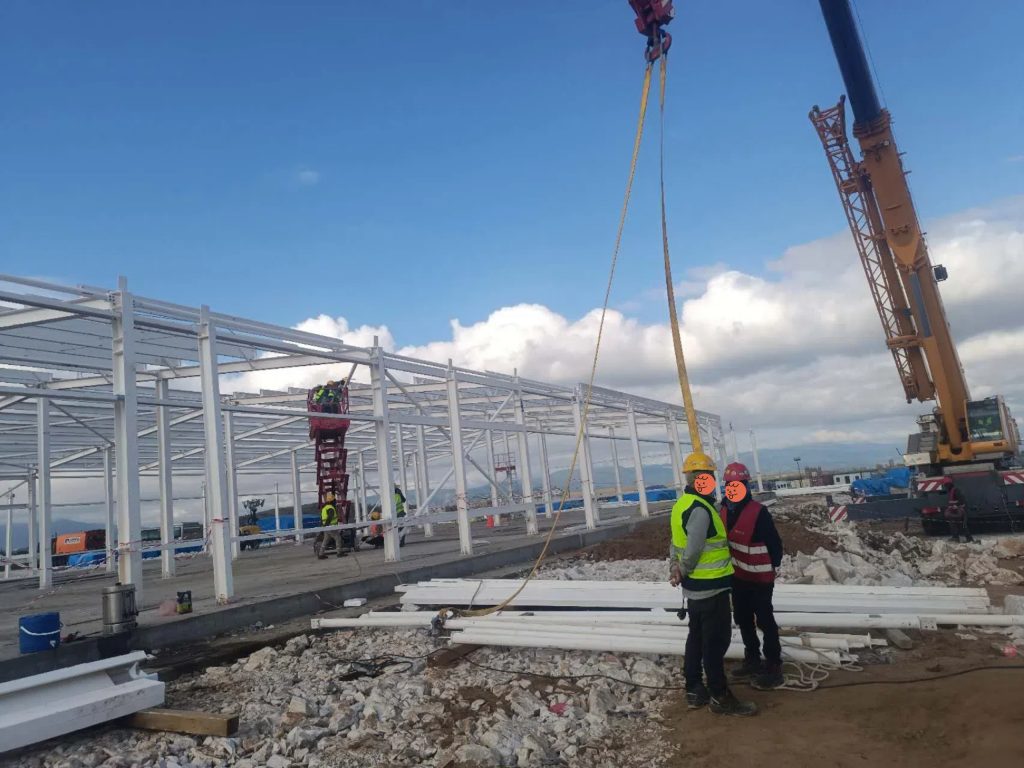
6. Case Studies: Successful Implementation of Lida Group’s Steel Warehouses
6.1 Global Vaccine Distribution Centers
A major global healthcare organization operating vaccine distribution centers across multiple continents faced challenges with maintaining consistent storage conditions in its traditional facilities, particularly in regions with extreme temperatures. The organization partnered with Lida Group to construct new steel warehouses equipped with advanced temperature and humidity control systems.
The results were impressive. The new warehouses were able to maintain stable temperatures within the required ranges, even in harsh climates. Temperature excursions, which had been a frequent problem in the traditional facilities, were virtually eliminated. This led to a significant reduction in vaccine waste, as fewer vaccines were rendered ineffective due to improper storage. The advanced monitoring systems also provided the organization with accurate and detailed records, simplifying regulatory compliance and improving quality assurance.
6.2 Regional Pharmaceutical Storage Facilities
A regional pharmaceutical company in a temperate climate was looking to expand its storage capacity to meet growing demand for vaccines. The company chose Lida Group’s steel warehouse solution for its scalability and energy efficiency. The warehouse was designed to accommodate both standard and ultra-low temperature storage, allowing the company to store a wide range of vaccines.
The modular design of the warehouse made it easy to expand as the company’s needs grew. Within two years of the initial construction, an additional section was added, doubling the storage capacity without disrupting operations. The energy-efficient systems reduced the company’s operational costs by 20% compared to its previous facility, and the improved environmental control systems ensured that vaccines remained stable, reducing waste and improving product quality.
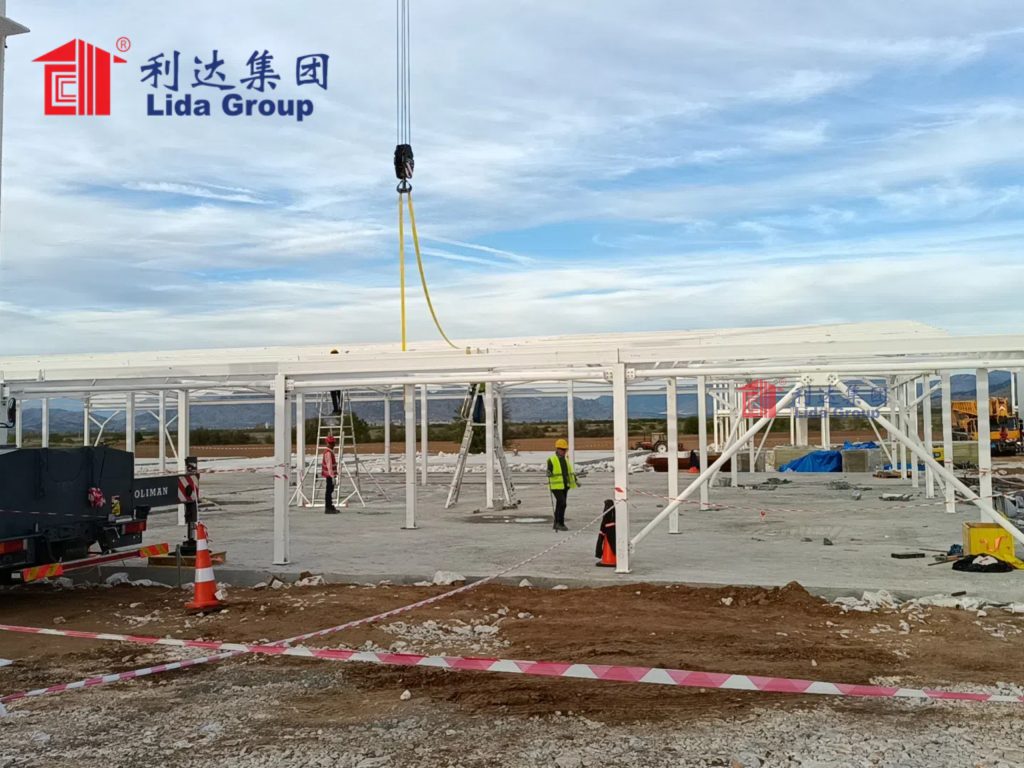
7. Future Innovations in Pharma Storage from Lida Group
7.1 Integration of Smart Technologies
Lida Group is continuously exploring ways to enhance its steel warehouses with smart technologies. One area of focus is the integration of artificial intelligence (AI) and machine learning (ML) into the environmental control and monitoring systems. AI-powered systems could analyze historical data on temperature, humidity, and other parameters to predict and prevent excursions, optimizing storage conditions and reducing the risk of vaccine degradation.
ML algorithms could also be used to optimize energy usage, adjusting the operation of temperature and humidity control systems based on external weather conditions and storage requirements. This would further improve energy efficiency and reduce operational costs. Additionally, smart sensors could be used to monitor the condition of the steel structure itself, detecting signs of wear or damage early and allowing for proactive maintenance.
7.2 Expansion of Ultra-Low Temperature Storage Capabilities
As the development of vaccines requiring ultra-low temperature storage continues, Lida Group is working to expand the capabilities of its steel warehouses in this area. The company is researching new insulation materials and refrigeration technologies that can maintain even lower temperatures with greater energy efficiency. This would allow for the storage of a wider range of vaccines, including those that require storage at -100°C or lower.
7.3 Enhanced Sustainability Features
Lida Group is committed to further enhancing the sustainability of its steel warehouses. This includes exploring the use of more recycled materials in steel production, as well as developing new ways to integrate renewable energy sources such as wind and geothermal power. The company is also researching ways to reduce the carbon footprint of the construction process, such as using low-emission transportation and construction equipment.
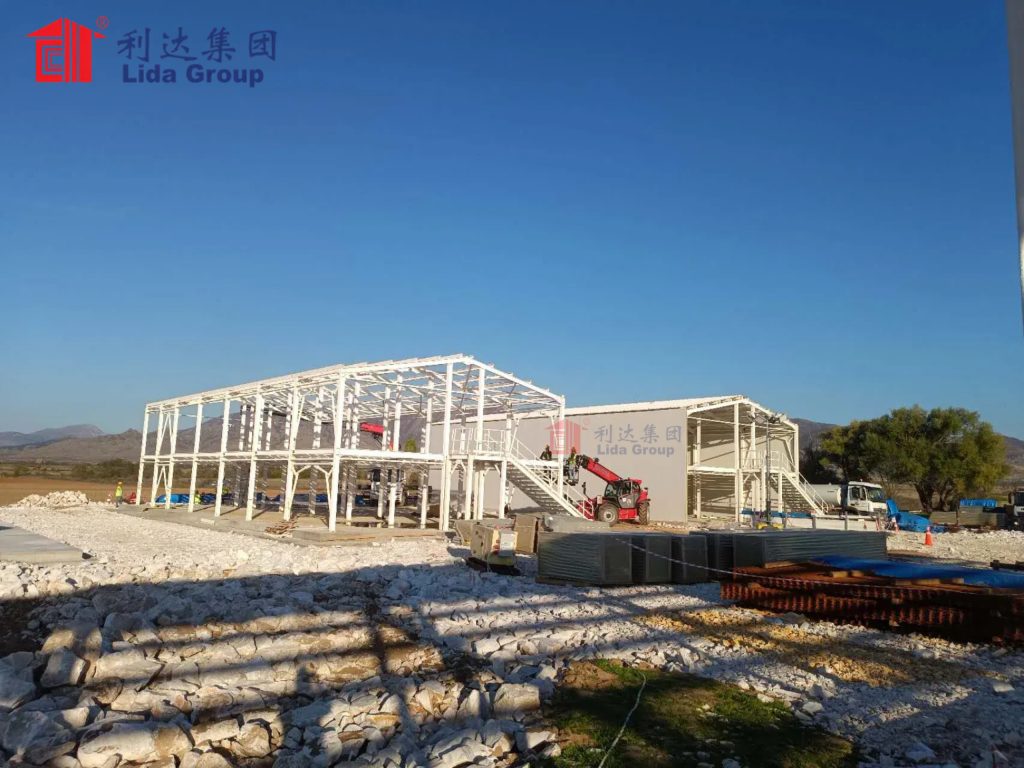
8. Conclusion
Lida Group’s high-quality steel warehouses, featuring precision steel frame buildings, represent a significant breakthrough in pharmaceutical storage, particularly for vaccines. These facilities address the critical need for specialized storage solutions that can maintain the integrity of vaccines through precise temperature and humidity control, enhanced insulation, advanced air quality management, and comprehensive security and monitoring systems.
The benefits of these warehouses are numerous, including ensuring vaccine efficacy and safety, facilitating regulatory compliance, reducing costs through improved energy efficiency and durability, and promoting sustainability. Case studies from global vaccine distribution centers and regional pharmaceutical facilities demonstrate the tangible impact of Lida Group’s solutions, highlighting their ability to transform vaccine storage operations.
Looking to the future, Lida Group’s commitment to innovation, including the integration of smart technologies, expansion of ultra-low temperature storage capabilities, and enhancement of sustainability features, positions it to continue leading the way in pharmaceutical storage. As the demand for vaccines continues to grow and evolve, these advanced steel warehouses will play a crucial role in ensuring that vaccines reach those who need them most, safely and effectively.
In conclusion, Lida
Group’s precision steel frame warehouses are more than just storage facilities—they are a vital link in the global healthcare chain, ensuring that life-saving vaccines retain their efficacy from production to administration. By combining engineering excellence with a deep understanding of pharmaceutical requirements, the company has set a new standard for vaccine storage, one that prioritizes precision, reliability, and sustainability.
These warehouses not only address the immediate challenges of maintaining stable environmental conditions but also anticipate future needs, such as the storage of next-generation vaccines and the integration of cutting-edge technologies. As the world continues to face new public health threats and the demand for vaccines grows, the role of such advanced storage solutions becomes increasingly indispensable.
Lida Group’s contribution to pharmaceutical storage extends beyond infrastructure; it is a commitment to public health. By ensuring that vaccines remain safe and effective, the company helps to strengthen immunization programs, protect vulnerable populations, and ultimately save lives. In an era where global health security is of paramount importance, Lida Group’s high-quality steel warehouses stand as a testament to the power of innovation in safeguarding our collective well-being.
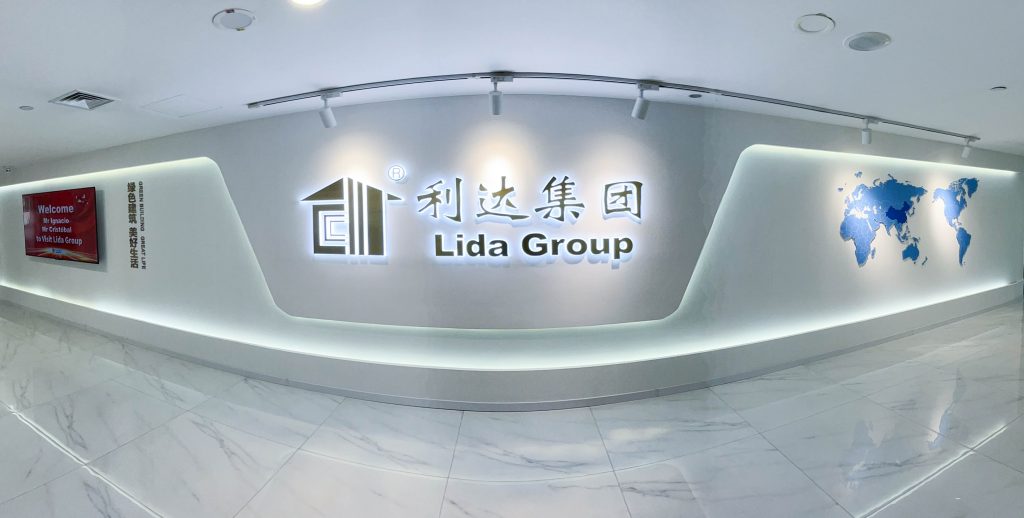
Related news
-
Hurricane-Resistant Farm Innovation: Steel Frame Building Systems from Lida Group Protect High-Quality Agricultural Assets
2025-08-14 13:34:43
-
Automated Poultry Revolution: Lida Group Delivers Climate-Controlled Steel Farm Houses via Advanced Steel Structure Construction
2025-08-14 14:25:15
-
Lida Group Elevates Cold Chain Logistics with High-Quality Steel Warehouses Using Robot-Assisted Steel Structure Construction
2025-08-14 10:48:33
contact us
- Tel: +86-532-88966982
- Whatsapp: +86-13793209022
- E-mail: sales@lidajituan.com


